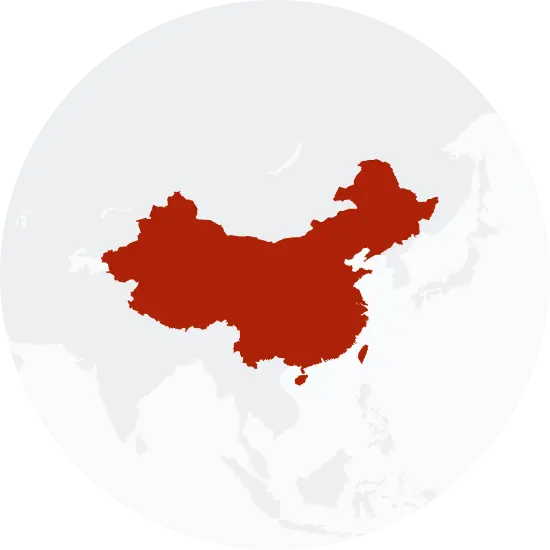Explore the Family Name Chun
How common is the last name Chun in the United States?
Based on data from the Decennial U.S. Census, the surname Chun has grown in popularity from 2000 to 2010. Ranked 2,967 in 2000, it rose to 2,740 in 2010, marking a 7.65% increase in rank. The number of people bearing this surname also grew from 11,154 in 2000 to 13,141 in 2010, an uptick of 17.81%. This reflects a rise in proportion per 100,000 from 4.13 to 4.45, indicating a 7.75% increase.
| 2000 | 2010 | Change | |
|---|---|---|---|
| Rank | #2,967 | #2,740 | 7.65% |
| Count | 11,154 | 13,141 | 17.81% |
| Proportion per 100k | 4.13 | 4.45 | 7.75% |
Race and Ethnicity of people with the last name Chun
In terms of ethnicity based on the Decennial U.S. Census data, the largest percentage of people with the Chun surname identify as Asian/Pacific Islander, although this group saw a decrease from 86.31% in 2000 to 81% in 2010. Those identifying as two or more races increased by 28.24%, from 6.48% to 8.31%. The count of individuals identifying as white remained relatively stable at around 3.7%. A notable change was seen within the Hispanic group, which experienced a significant jump of 111.76%, from 3.06% in 2000 to 6.48% in 2010. Meanwhile, representation among Blacks and American Indian and Alaskan Native groups remained very small, though there were slight increases noted in both categories.
| 2000 | 2010 | Change | |
|---|---|---|---|
| Asian/Pacific Islander | 86.31% | 81% | -6.15% |
| Two or More Races | 6.48% | 8.31% | 28.24% |
| Hispanic | 3.06% | 6.48% | 111.76% |
| White | 3.69% | 3.71% | 0.54% |
| Black | 0% | 0.46% | 0% |
| American Indian and Alaskan Native | 0% | 0.04% | 0% |
Chun ancestry composition
23andMe computes an ancestry breakdown for each customer. People may have ancestry from just one population or they may have ancestry from several populations. The most commonly-observed ancestry found in people with the surname Chun is Korean, which comprises 39.4% of all ancestry found in people with the surname. The next two most common ancestries are Chinese (30.6%) and Japanese (8.0%). Additional ancestries include British & Irish, French & German, Filipino & Austronesian, Chinese Dai, and Spanish & Portuguese.
Ready to learn more about your ancestry? Get the most comprehensive ancestry breakdown on the market by taking our DNA test. Shop 23andMe
| ANCESTRY BREAKDOWN | COMPOSITION |
|---|---|
| Korean | 39.4% |
| Chinese | 30.6% |
| Japanese | 8.0% |
| Other | 22.0% |

Possible origins of the surname Chun
Your DNA provides clues about where your recent ancestors may have lived. Having many distant relatives in the same location suggests that you may all share common ancestry there. Locations with many distant relatives can also be places where people have migrated recently, such as large cities. If a large number of individuals who share your surname have distant relatives in a specific area, it could indicate a connection between your surname and that location, stemming from either recent ancestral ties or migration.
Based on 23andMe data, people with last name Chun have recent ancestry locations in China and South Korea.
| RECENT ANCESTRY Location | Percentage |
|---|---|
| Guangdong, China | 41.60% |
| Seoul, South Korea | 40.80% |
| Jiangsu, China | 37.10% |
| Fujian, China | 36.70% |
| Shandong, China | 35.90% |
What Chun haplogroups can tell you
Haplogroups are genetic population groups that share a common ancestor on either your paternal or maternal line. These paternal and maternal haplogroups shed light on your genetic ancestry and help tell the story of your family.
The top paternal haplogroup of people with the surname Chun is O-F8, which is predominantly found among people with East Asian & Indigenous American ancestry. Haplogroup O-F8 is descended from haplogroup O-M1359. Other common haplogroups include O-F1204 and O-F11, which are predominantly found among people with East Asian & Indigenous American and East Asian & Indigenous American ancestry. Other surnames with similar common haplogroups are: Song, Hong, Hwang, Chong, Chang, Lum, Wang, Yao, Han, Chan.
The most common maternal haplogroups of people with Chun surname are: D4a, H, D4. These most commonly trace back to individuals of East Asian & Indigenous American and European ancestry.
 Paternal Haplogroup Origins O-M1359
Paternal Haplogroup Origins O-M1359
Your paternal lineage may be linked to the Han Chinese
Haplogroup O-Page23 has been found in several populations of the Han Chinese ethnic group. The ancestors of the Han, called the Huaxia, lived in the upriver basin of the Yellow River 5,000-6,000 years ago. As agricultural technology improved, the Huaxia spread east and south, and became the Han Chinese. Over the last 2,000 years, there have been three major migrations of the Han southward. The first of these migrations occurred during the Jin Dynasty from 317 to 420 CE, when nearly one million people moved south. A second migration occurred during the Tang Dynasty, after the An-Shi Rebellion, between 755 and 762 CE. The last migration occurred during the Southern Song Dynasty, from 1127 to 1297 CE, when nearly 5 million people migrated southward. The Pinghua, a branch of Han in which haplogroup O2a2b1a1 is particularly common, may be descendants of indigenous minority groups that adopted Han culture during one such major migration event.
Your maternal lineage may be linked to Marie Antoinette
Because it is so dominant in the general European population, haplogroup H also appears quite frequently in the continent's royal houses. Marie Antoinette, an Austrian Hapsburg who married into the French royal family, inherited the haplogroup from her maternal ancestors. So did Prince Philip, Duke of Edinburgh, whose recorded genealogy traces his female line to Bavaria. Scientists also discovered that famed 16th century astronomer Nicolaus Copernicus traced his maternal lineages to haplogroup H.

What do people with the surname Chun have in common?
Spoiler alert: it's complicated. People with the same last name are usually no more genetically similar than a randomly sampled group of people from the same population. That said, people with the same surname are more likely to have similar ancestries than randomly sampled individuals. The reason is the tendency of people with similar cultural or geographical backgrounds to preferentially mate with one another. That's why people who share a surname may be more likely to share traits and tendencies in common than people within the general population. Check out the percentages below to see the prevalences of tastes, habits, and traits of people with your surname compared with prevalences among 23andMe users.
Preferences
Traits
Habits
Wellness
Are health conditions linked to the last name Chun?
The short answer is that, if there is an association between surname and health, it's usually more about your ancestry than your name. Individuals with a given surname are no more genetically similar than the general population but often have similar ancestries. The populations of people associated with those shared ancestries often have sets of genetic variations, also known as alleles, in common. Some of those alleles are associated with a greater likelihood of developing certain diseases.
Disease variant frequency by ancestry
Disease allele frequencies in populations associated with the surname Chun are shown below. Important Note: not everyone with a disease allele will develop these health condition





















